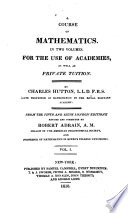 | Charles Hutton - Arithmetic - 1818 - 646 pages
...the alphabet. The Roman* used only seven numeral letters, being the seven following capitals : viz. I for one ; V for five ; X. for ten ; L for fifty ; C for an hundred ; D for five hundred ; M for a thousand. The other numbers they expressed by various repetitions... | |
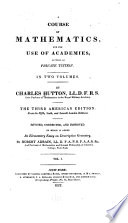 | Charles Hutton - Mathematics - 1822 - 616 pages
...the alphabet. The Romans used only seven numeral letters, being the seven following capitals : vix. I for one; V for five ; X for ten ; L for fifty ; C for an hundred ; D for five hundred : M for a thousand. The other numbers they expressed by various repetitions... | |
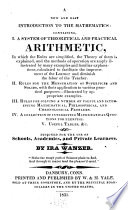 | Ira Wanzer - Arithmetic - 1831 - 408 pages
...express numbers. The Romans used only seven numeral letters, being the seven following capitals, viz. I for one, V for five, X for ten, L for fifty, C for an hundred, D i'ovfive hundred, and M for a thousand. The other numbers they expressed by various repetitions... | |
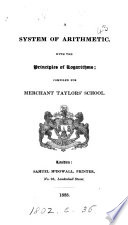 | Richard Frederick Clarke (the elder.) - 1833 - 158 pages
...Notation was unknown, made use of seven capital letters to express any number required ; namely, I for one ; V for five ; X for ten ; L for fifty ; C for one hundred ; D for five hundred ; M for one thousand. XXV expressed Twenty-five ;— CVIII One hundred and eight; — CCLXI Two hundred... | |
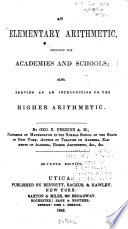 | George Roberts Perkins - Arithmetic - 1846 - 266 pages
...of the alphabet. The Romans made use of only seven capital letters, viz. : Ifor one ; V for Jive ; X for ten ; L for fifty ; C for one hundred ; D for fine hundred ; M for one thousand. The other numbers they expressed by various repetitions and combinations... | |
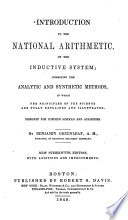 | Benjamin Greenleaf - Arithmetic - 1849 - 336 pages
...Indian.* ART. 3. The Roman notation employs seven capital letters, viz. : I, for one ; V, for Jive ; X, for ten ; L, for fifty ; C, for one hundred ; D, for five hundred ; M, for one thousand. The intermediate numbers and the numbers greater than one thousand are expressed... | |
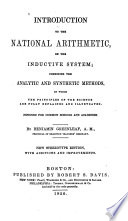 | Benjamin Greenleaf - Arithmetic - 1850 - 346 pages
...Roman, and the Arabic or Indian.* ART. 3. The Roman notation employs seven capital letters, viz. : I, for one ; V, for five ; X, for ten ; L, for fifty ; C, for one hundred ; D, for five hundred ; M, for one thousand. The intermediate numbers and the numbers greater than one thousand are expressed... | |
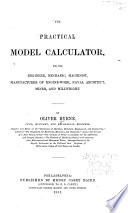 | Oliver Byrne - Engineering - 1851 - 310 pages
...the alphabet. The Romans only used seven numeral letters, being the seven following capitals : viz. I for one ; V for five ; X for ten ; L for fifty ; C for a hundred ; D for five hundred ; M for a thousand. The other numbers they expressed by various repetitions... | |
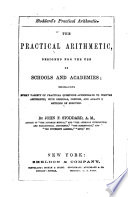 | John Fair Stoddard - Arithmetic - 1852 - 320 pages
...seven following letters to express numbers, which we now use to number Lessons, Chapters, &c. :— I, for one ; V, for five ; X, for ten ; L, for fifty ; C, for one hundred ; D, for five hundred ; M, for one thousand. The intermediate numbers and numbers greater than a thousand are expressed by... | |
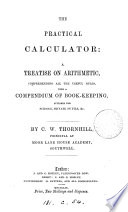 | C W. Thornhill - 1854 - 228 pages
...their numbers by certain letters of the alphabet. The Romans used seven numeral letters, namely, I. for one, V. for five, X. for ten, L. for fifty, C. for one hundred, D. for five hundred, and M. for a thousand. A less numerical letter standing before a greater must be taken from it, as I before V,... | |
| |